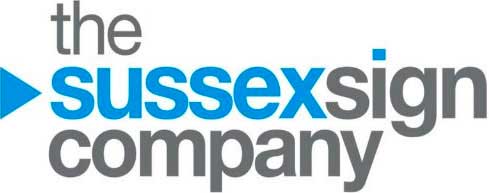Buying signage isn’t like buying stationery or office supplies so we have created this essential sign buying advice knowledge post to help you through your journey.
Buying Signage is a bespoke investment that represents your brand in the public eye every single day. But unless you’ve worked in the sign industry before, it can be difficult to know what to look for, or who to trust.
Like any industry, signage has its own standards, terminology, and best practices. Unfortunately, it also has its share of pitfalls, from companies cutting corners with cheap materials, to installations that fail compliance checks, to signs that look good for a few months but don’t last.
This essential sign buying advice guide will help you understand what you need to know about the sign industry before you buy. That way, you’ll feel confident making the right decision for your business.

1. The Sign Industry Is Not Regulated Like You Think
Unlike some trades, the sign industry in the UK is not heavily regulated. Almost anyone can set up shop with a printer and call themselves a sign maker.
That’s why it’s vital to check a company’s accreditations, experience, and portfolio. Look for memberships and certifications such as:
- Constructionline Gold
- CHAS or Acclaim Health & Safety
- CSCS, PASMA, IPAF qualifications for installers
- BSGA (British Sign & Graphics Association) membership
These show that a company takes compliance, safety, and professionalism seriously, essential sign buying advice that one!
2. Not All Materials Are Created Equal
In signage, materials matter. The difference between a cheap foamboard sign and a durable aluminium composite panel (ACM) could be five years of lifespan.
Similarly, using premium vinyl brands like 3M, Avery Dennison, or Metamark means your graphics will resist fading and peeling far longer than budget alternatives.
A reputable sign company will be transparent about materials, explaining why they’ve chosen a particular substrate or film for your project, essential sign buying advice number 2!
3. Design Is Just as Important as Production
Some companies are little more than printers. They’ll take your logo and “stick it on a board.” But effective signage requires design thinking:
- Will it be legible from the right distance?
- Does it use colour and contrast effectively?
- Is the layout uncluttered and easy to read?
- Does it align with your wider brand identity?
Professional sign companies employ in-house designers who understand both brand and visibility. Don’t underestimate the importance of this stage.
4. Installation Can Make or Break Your Sign
Even the best-made sign will fail if it’s badly installed. Poor fixing methods, inadequate brackets, or unsafe working practices can lead to accidents, early failure, or costly repairs.
Ask about the company’s installation process.
- Do they use trained, accredited staff?
- Do they carry the right insurance?
- Do they risk-assess every job?
These are non-negotiables in a professional operation, essential sign buying advice!
5. Cheap Quotes Usually Mean Shortcuts
It’s tempting to go with the lowest price, especially when budgets are tight. But in signage, you often get what you pay for.
Cheaper quotes may mean:
- Inferior materials that fade or warp quickly
- No design input, just “printing”
- Subcontracted installers with no accountability
- No warranty or aftercare
Instead of just comparing price, compare value: what’s included, how long it will last, and whether the company offers guarantees.
6. Planning Permission and Compliance Matter
Not all signage can be installed without approval. Large illuminated signs, signage in conservation areas, or signage on listed buildings often require planning permission.
A good sign company will guide you through this and even handle applications on your behalf. If a company brushes it off or says “don’t worry about it,” that’s a red flag.
See our Knowledge Centre post regarding planning for illuminated signs.
7. Aftercare Is Part of the Service
Like any investment, signage benefits from maintenance. From cleaning to re-laminating to vinyl removal, ongoing support makes a difference.
Ask whether the company offers aftercare or warranties. A reputable partner won’t disappear the moment the invoice is paid.
8. The Industry Is About Relationships, Not Just Products
The best signage projects come from strong partnerships. A good sign company will take time to understand your business, your goals, and your brand before making recommendations.
This is not a one-off transaction. Done right, your sign partner should be someone you can return to for future projects – whether it’s a fleet wrap, internal graphics, or a rebrand rollout.
Final Thoughts
The sign industry is full of talent and creativity, but like any sector, it has its challenges. Before you buy, make sure you:
- Check accreditations and qualifications
- Ask about materials and design
- Understand installation and compliance
- Look for transparency in quotes and warranties
- Choose a partner, not just a supplier
Your signage is one of the most visible marketing tools your business will ever have. Don’t leave it to chance, invest with a company you can trust.
At The Sussex Sign Company, we’ve spent nearly 30 years building a reputation for quality, compliance, and customer care. From design to aftercare, we’ll help you make an informed decision and create signage that works for your business.
